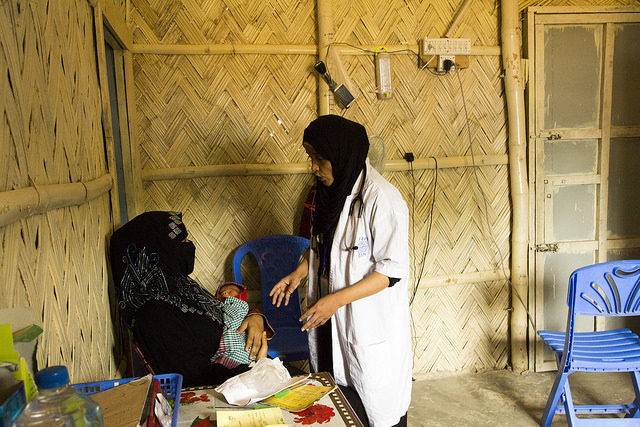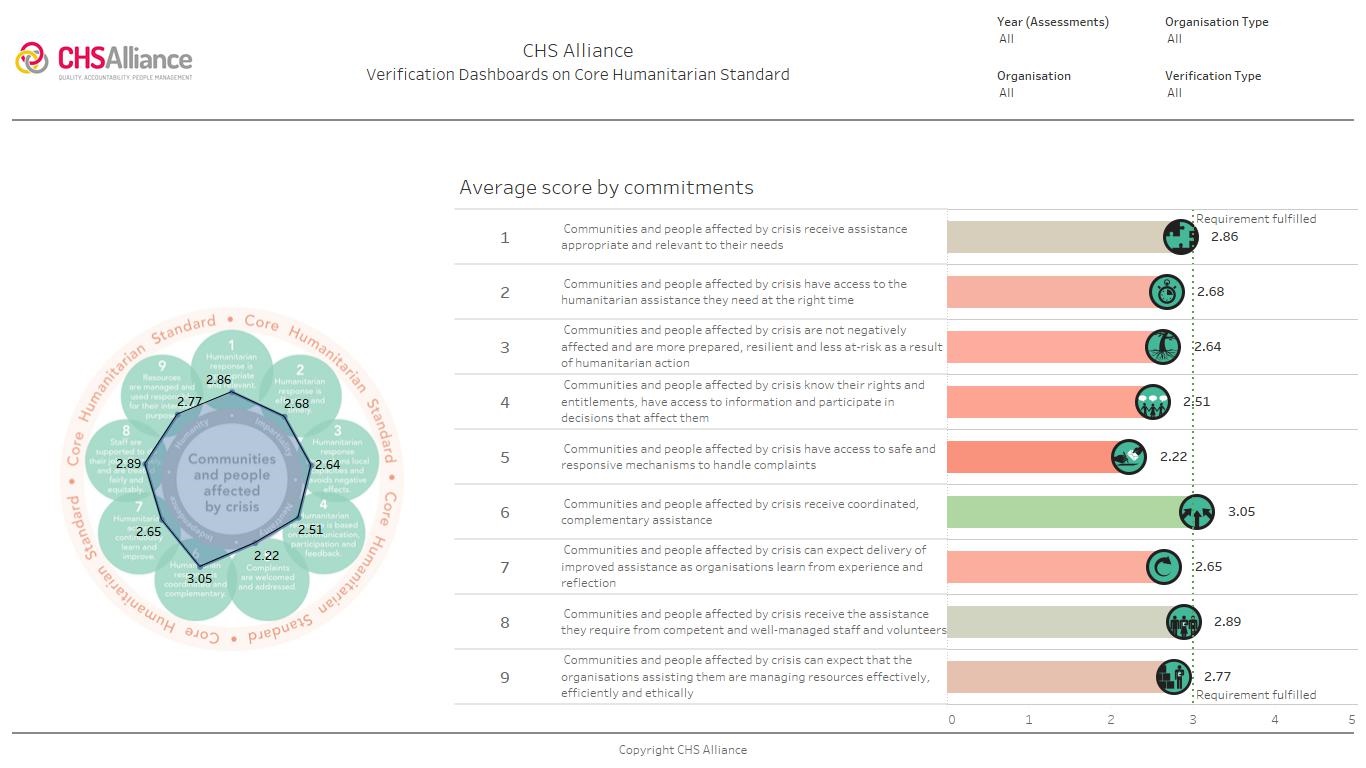World Humanitarian Data & Trends: Commitment 5 of the CHS is lagging behind

Self-assessments conducted with regard to the Core Humanitarian Standard (CHS) in 2016 reveal the extent to which humanitarian organisations do or do not fulfil the nine commitments. The commitment with the lowest average score is Commitment 5, which calls for communities and people affected by crisis to have access to safe and responsive complaint mechanisms – a necessary component of accountable humanitarian action.
Commitment 5’s self-assessment score of 2.1 means that the practices of organisations are occasionally in accordance with the standard recommended by the CHS. Self-reporting shows that organisations are only ‘compliant’ with Commitment 6: humanitarian response is coordinated and complementary.

These scores provide insight ito the key areas where more efforts are needed to make humanitarian response accountable to communities and people affected by crisis. Many other facts about the humanitarian sector are found in UNOCHA’s annual World Humanitarian Data and Trends (WHDT) report, launched at the Annual Policy Forum on 13 December.
World Humanitarian Data and Trends (WHDT) is an annual flagship report from OCHA that showcases major trends in the nature of humanitarian crises, their causes and drivers. The report’s purpose is to consolidate data and trend analysis about humanitarian crises and assistance, and present it in an accessible way, providing policymakers, researchers and practitioners with an evidence base to support policy and operational decisions. World Humanitarian Data and Trends is just one part of OCHA’s efforts to improve data and analysis on humanitarian situations worldwide and build a humanitarian data community.
